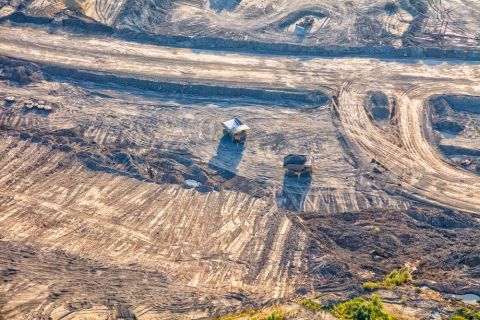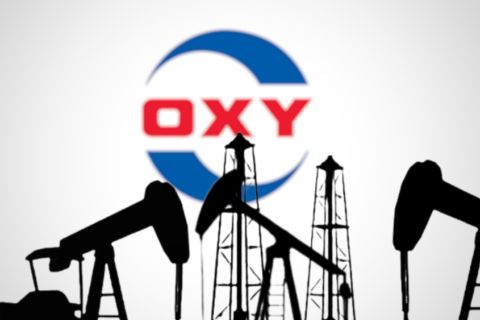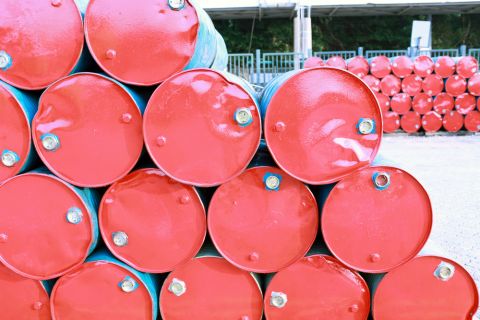Halliburton Co., the No. 2 oilfield service provider, expects to raise prices at least 10% and in some cases 20% or more this year. The increases are higher than many customers expect but ones that company executives said were crucial to fuel the oil industry’s nascent growth.
The rising business activity comes as Jeff Miller prepares to become the 98-year-old company’s CEO next month, taking over from Dave Lesar, CEO since 2000.
“We will continue to implement our strategy,” Miller said in an interview at the company’s Houston headquarters just outside George Bush Intercontinental Airport. “North America is absolutely our growth story today.”
Miller, Lesar and other executives have been in talks with customers for months about raising rates for Halliburton’s myriad of services, highlighting not only the company's scale but its experience.
Halliburton was the first company to hydraulically fracture, or frack, a well, pioneering the process in 1949.
Many customers had locked in service rates during the two-year price downturn when Halliburton laid off more than 35,000 employees. Today, with the American shale oil industry whirring again, Halliburton is at max capacity for many services and itching to charge more.
Like peers, Halliburton has said it will not refurbish old equipment for field use until prices rise and has no North American fracking crews available until at least the fall. That limits the ability of customers to bring new wells online.
“Customer urgency is the most-important part of that discussion today,” said Miller, an accountant by training.
Lesar, who will retire as CEO but remain executive chairman until Dec. 2018, echoed those comments in an interview, adding that Halliburton is keen to work with producers to prevent rampant cost inflation.
“We and our customers have to co-exist in this environment,” said Lesar, who became CEO after predecessor Dick Cheney was nominated to be U.S. vice president. “Everybody has got to make money.”
Shares of Halliburton, which have lost about 14% this year, rose 24 cents, or 0.5%, on May 18 to close at $46.58.
Oil Prices
Both executives expect oil prices to remain near $50 per barrel for the foreseeable future, a level they believe will allow North American shale customers and Halliburton to grow in tandem.
“Clearly, the rising star at this point in time is the Permian” shale basin of Texas and New Mexico, Lesar said, adding that the DJ Basin in Colorado and the Utica in Ohio are other shale areas where Halliburton is growing.
Costs for sand used in fracking pressured Halliburton over the winter, since many mines are located in the northern United States. Still, both executives said they believe their supply costs should stabilize this year.
Staffing, Competition
Halliburton has hired more than 2,000 workers since the oil industry started to recover, more than half of them former employees. That points to the company’s lucrative salary and perks, as well as its culture, both executives said.
“We’ve got a very loyal workforce,” Miller said.
One role the company must soon fill is finance chief, after Mark McCollum left earlier this year to become CEO of rival Weatherford International Plc.
“We have got some really good candidates for CFO,” Lesar said. “We can take the luxury of time to find the absolute best fit.”
As Lesar hands the reins to Miller, Halliburton faces a re-energized competitive landscape. Rival Baker Hughes Inc. is set to merge later this year with General Electric Co.’s oil and gas division, which is located right next door to Halliburton's headquarters.
It is a tense tie-up for Halliburton after it failed to buy Baker itself last year and had to pay a $3.5 billion breakup fee.
“Our position in North America is second-to-none,” Lesar said. “We intend to hold that, no matter what the competition does.”
Recommended Reading
Canadian Natural Resources Boosting Production in Oil Sands
2024-03-04 - Canadian Natural Resources will increase its quarterly dividend following record production volumes in the quarter.
Buffett: ‘No Interest’ in Occidental Takeover, Praises 'Hallelujah!' Shale
2024-02-27 - Berkshire Hathaway’s Warren Buffett added that the U.S. electric power situation is “ominous.”
Kissler: OPEC+ Likely to Buoy Crude Prices—At Least Somewhat
2024-03-18 - By keeping its voluntary production cuts, OPEC+ is sending a clear signal that oil prices need to be sustainable for both producers and consumers.
NGL Growth Leads Enterprise Product Partners to Strong Fourth Quarter
2024-02-02 - Enterprise Product Partners executives are still waiting to receive final federal approval to go ahead with the company’s Sea Port Terminal Project.
NOV's AI, Edge Offerings Find Traction—Despite Crowded Field
2024-02-02 - NOV’s CEO Clay Williams is bullish on the company’s digital future, highlighting value-driven adoption of tech by customers.





